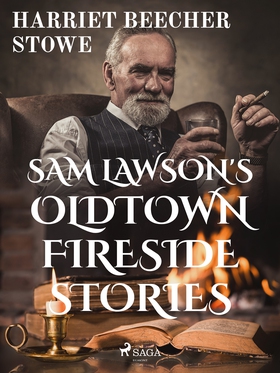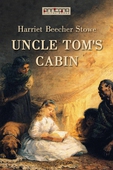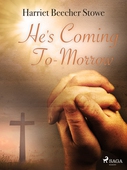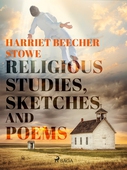
Lägg till önskelistan
Sam Lawson's Oldtown Fireside Stories e-bok
Pris
125 kr
There is a village ne'er-do-well in every small town. This one is the kind-hearted and unreliable Sam Lawson, who was such a fine storyteller it made him popular enough to have this book named after him.
Harriet Beecher Stowe, the author of 'Uncle Tom's Cabin', turned her husband’s (and her own) memories of growing up in New England into tales of eccentric relations and wonderful small-town characters leading to this interesting collection of short stories that needed to be told.
Included i...
E-Bok
125 kr
Pris
Förlag
Saga Egmont
Utgiven
30 Mars 2022
Längd
148 sidor
Genrer
Romaner, Skönlitteratur
Språk
English
Format
epub
Kopieringsskydd
Vattenmärkt
ISBN
9788726891591
There is a village ne'er-do-well in every small town. This one is the kind-hearted and unreliable Sam Lawson, who was such a fine storyteller it made him popular enough to have this book named after him.
Harriet Beecher Stowe, the author of 'Uncle Tom's Cabin', turned her husband’s (and her own) memories of growing up in New England into tales of eccentric relations and wonderful small-town characters leading to this interesting collection of short stories that needed to be told.
Included inside 'Sam Lawson’s Oldtown Fireside Stories', are many literacy treasures such as; 'The Ghost in the Mill', 'The Widow's Bandbox', 'The Bull Fight' and 'How to fight the Devil'. I am sure after reading these you will not be able to decide on a favourite as they are all extremely entertaining.
A thorn in the angry eyes of American slave owners, Harriet Beecher Stowe (1811-1896) was an American author and ardent abolitionist. Her novel 'Uncle Tom’s Cabin' (1852) became one of the most famous literary attacks on slavery at the time. The novel was also turned into a play and made into movies more than once. The latest version from 1987 features Samuel L. Jackson, one of the most popular actors of his generation.
Stowe also wrote numerous travel memoirs, letters, articles, and short stories – all crucial to the depiction of the injustice of African Americans we still hear about today.








